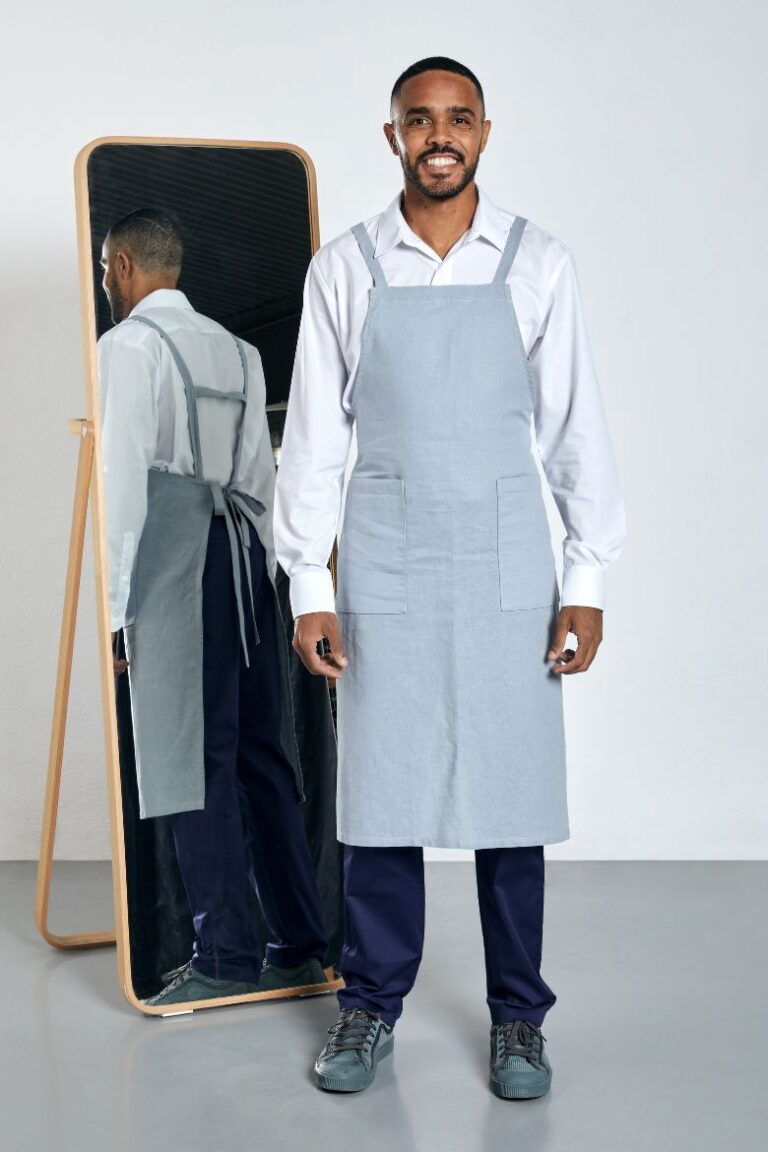
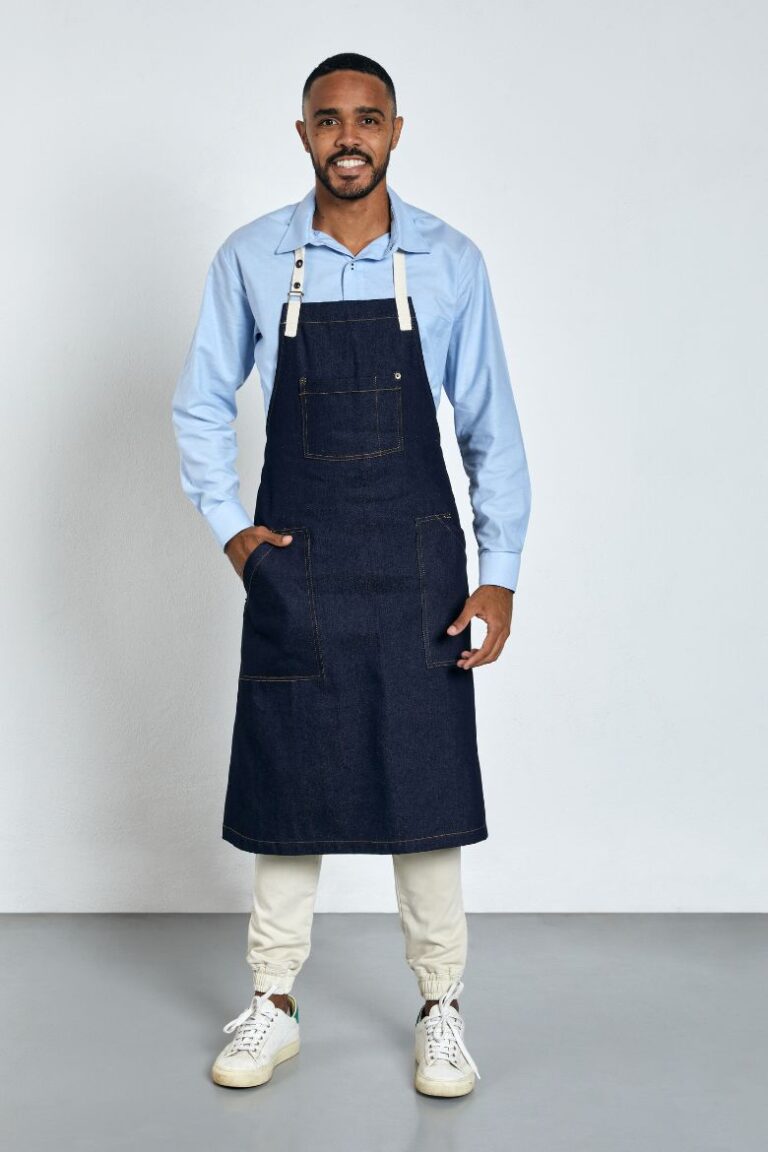
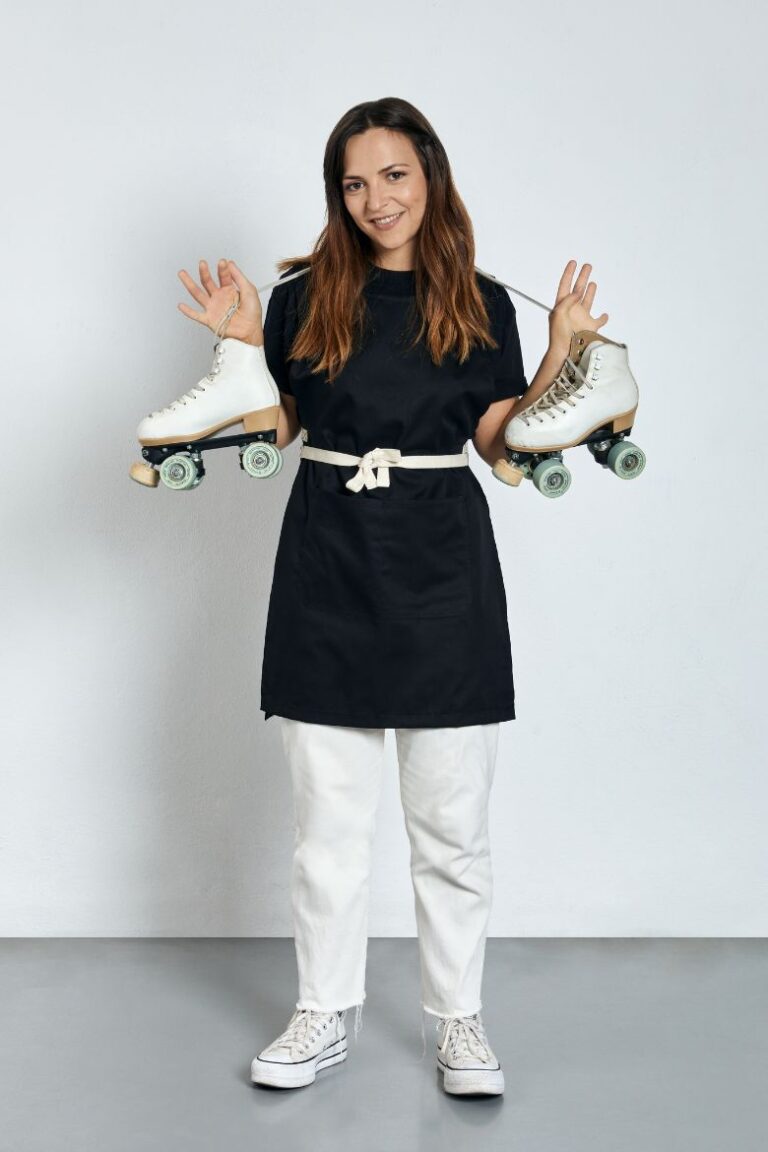
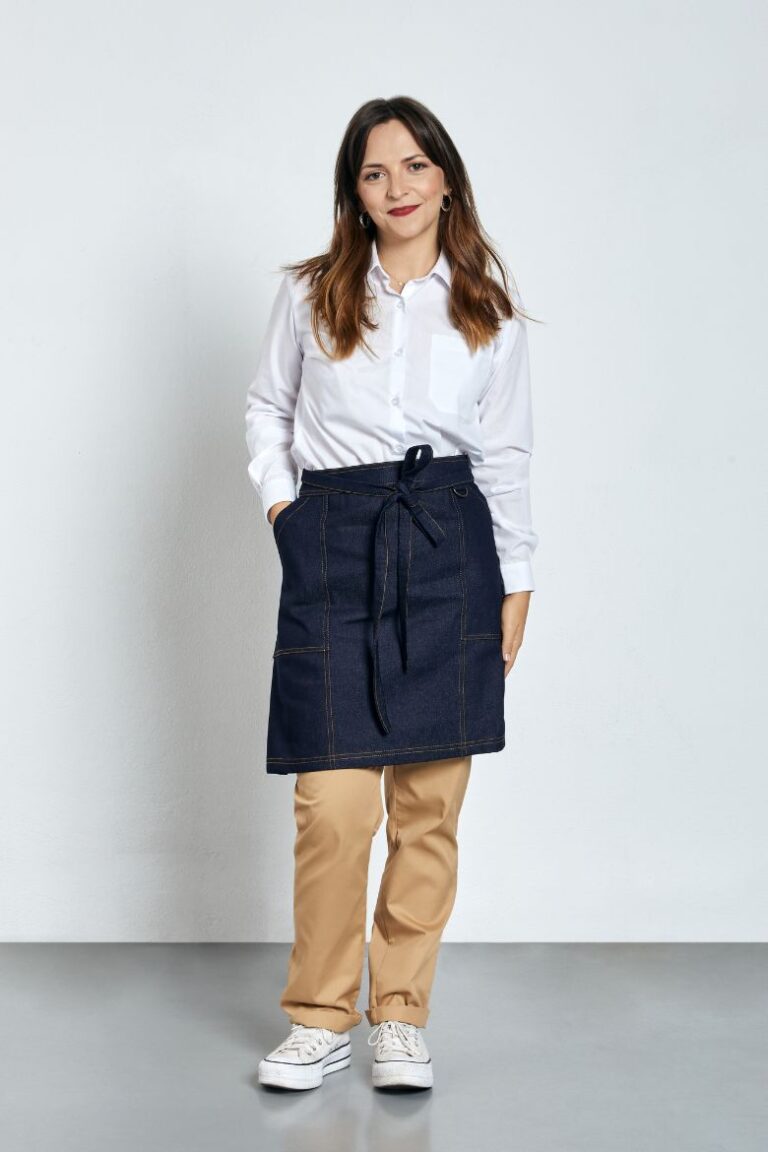
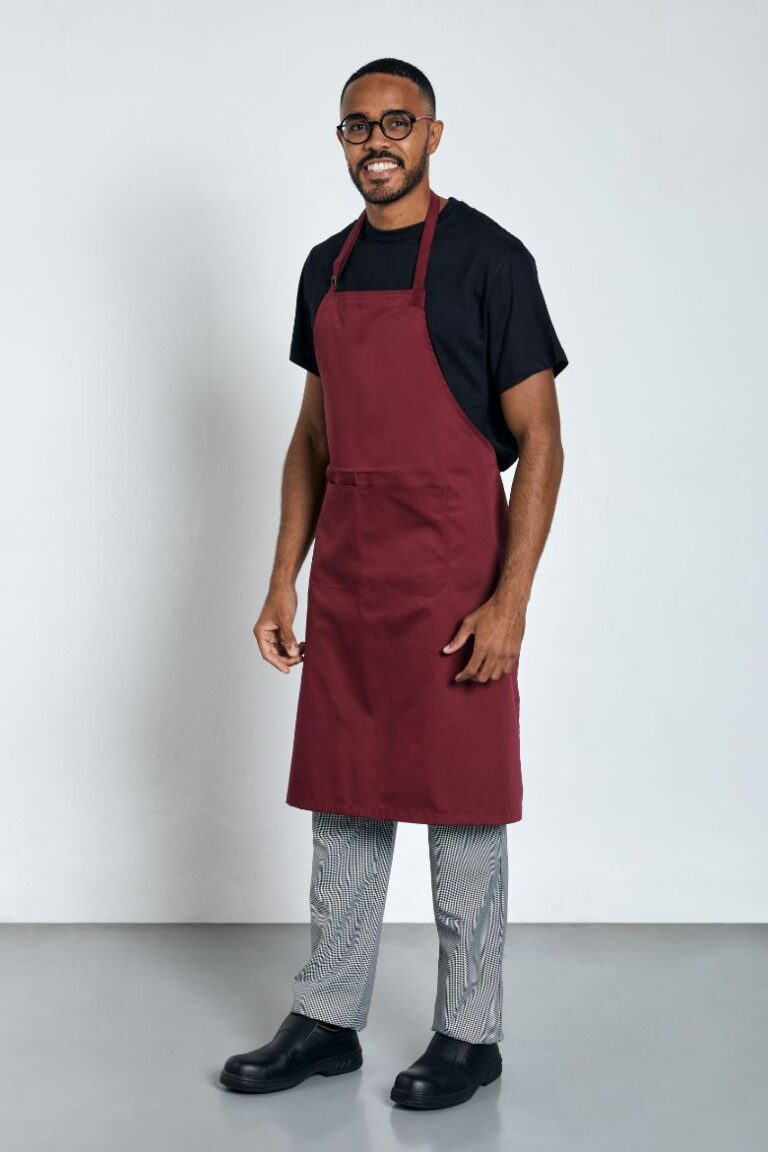
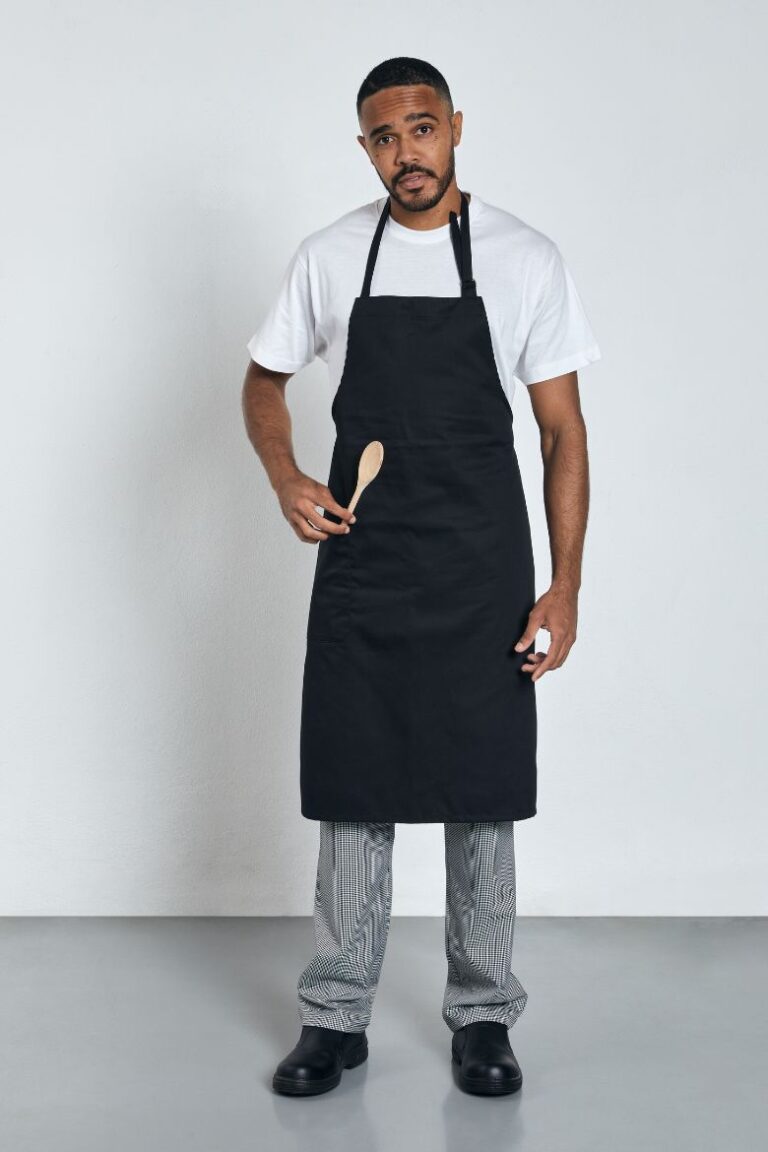
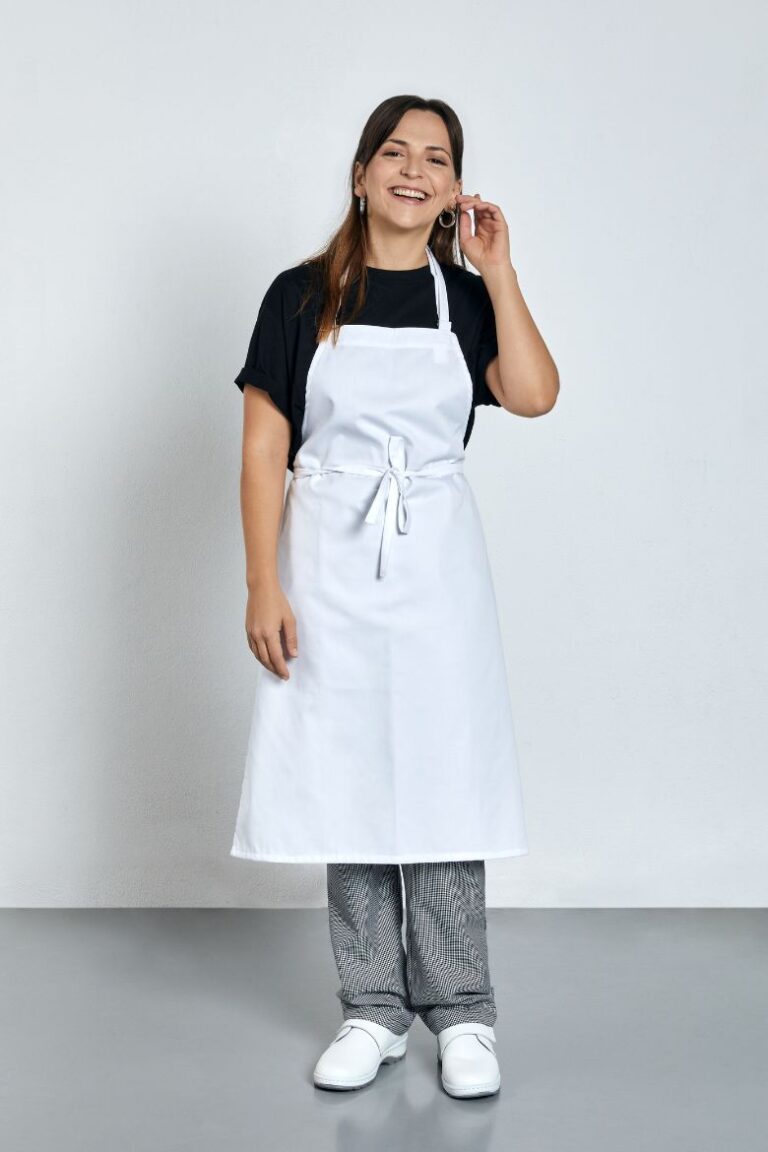
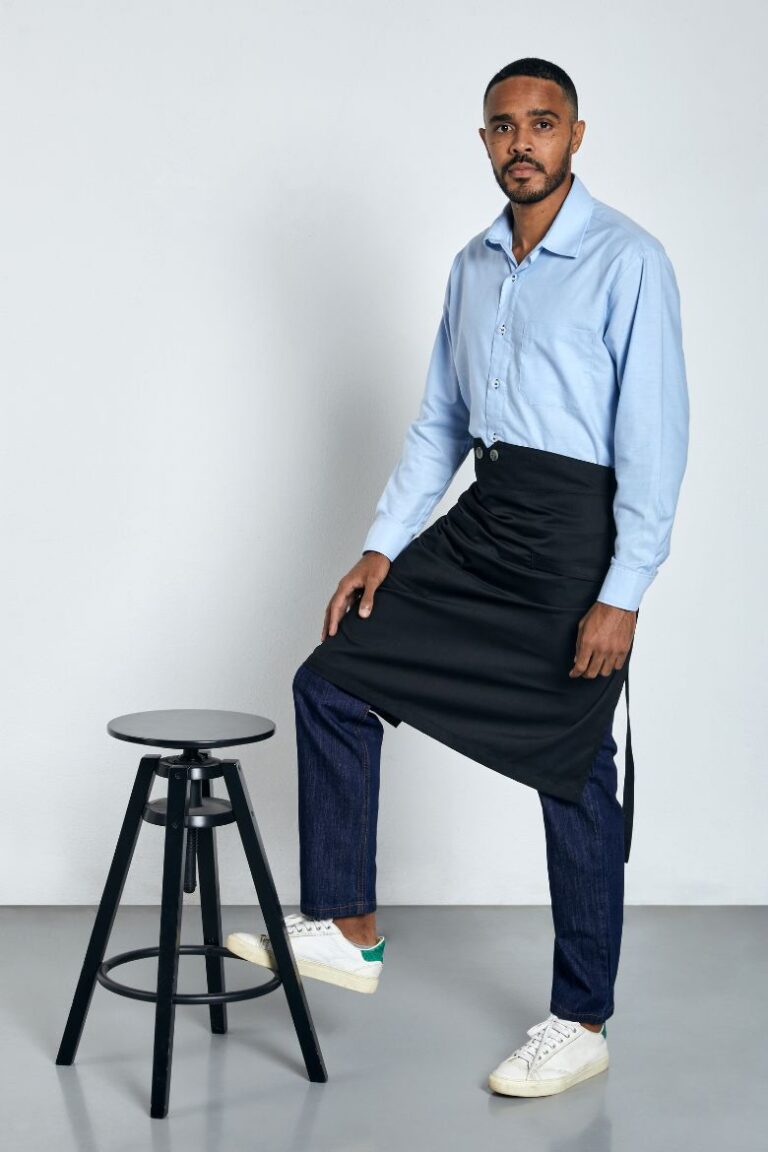
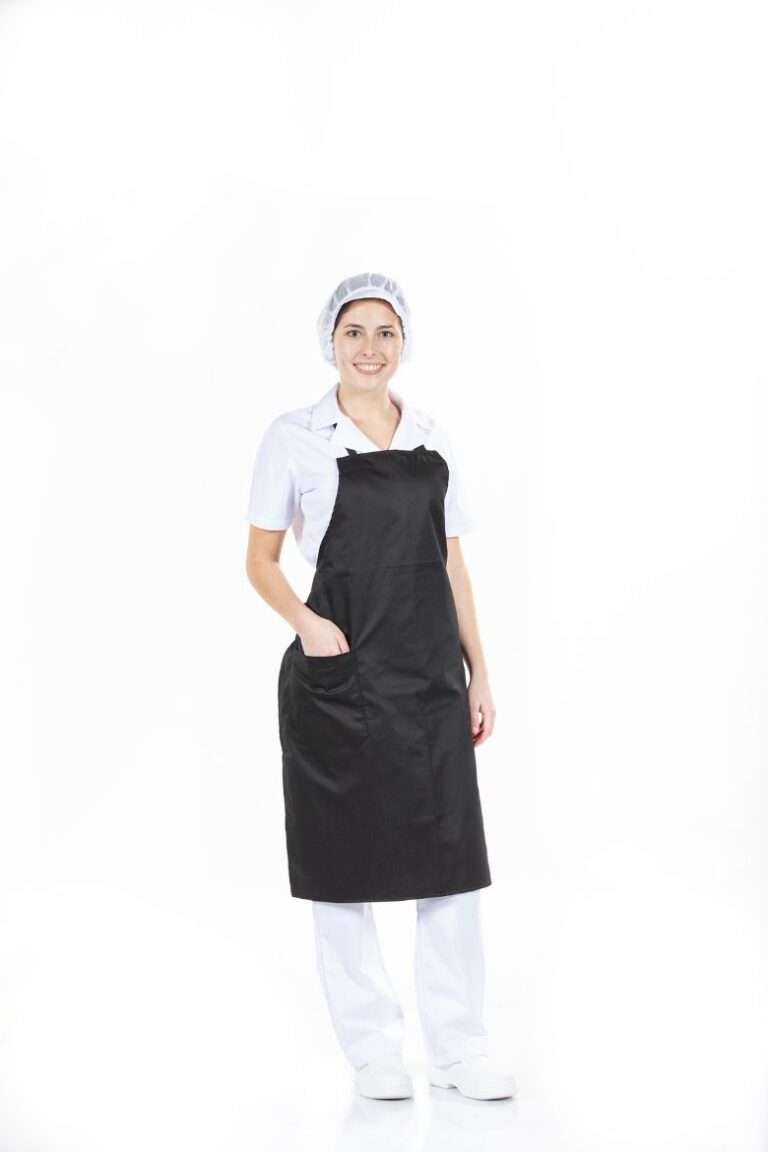
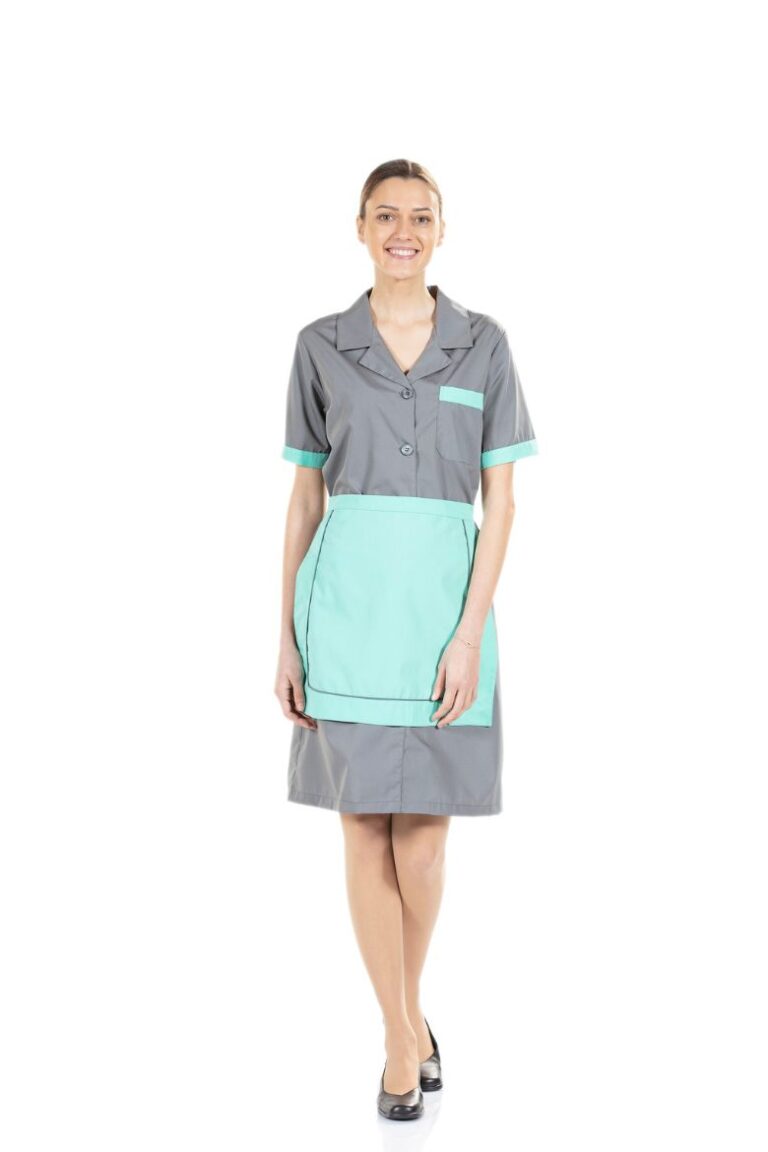
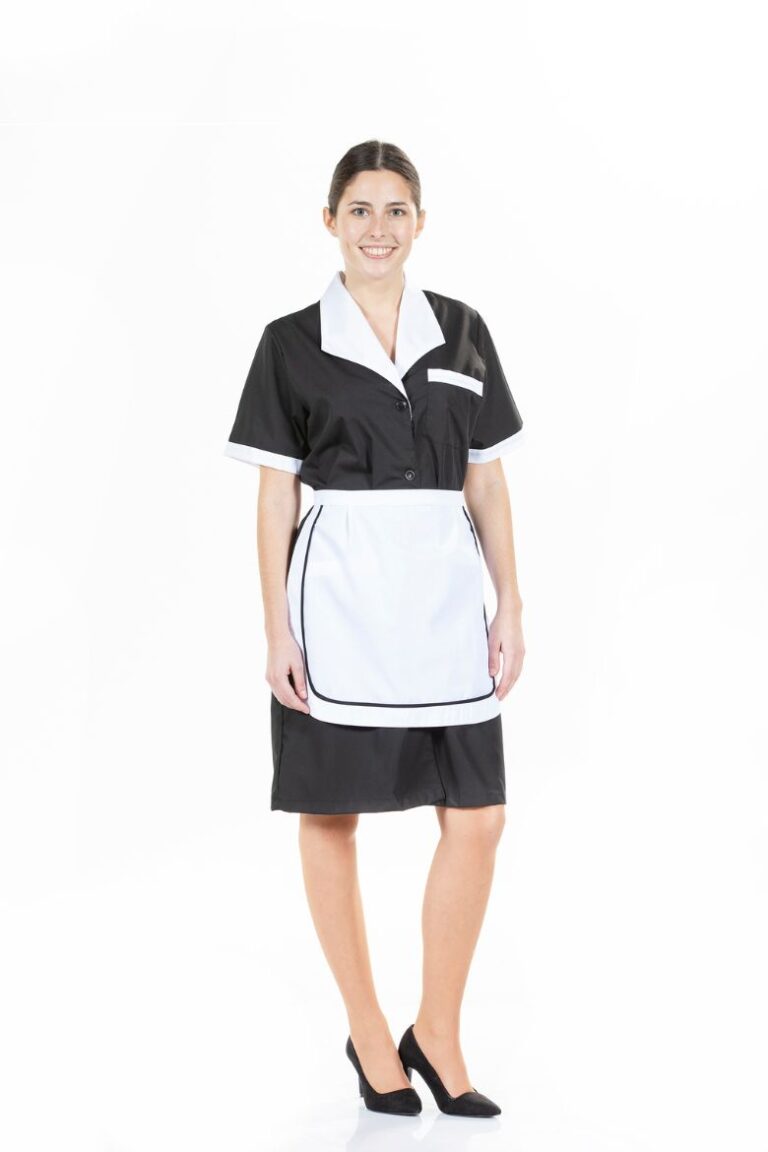
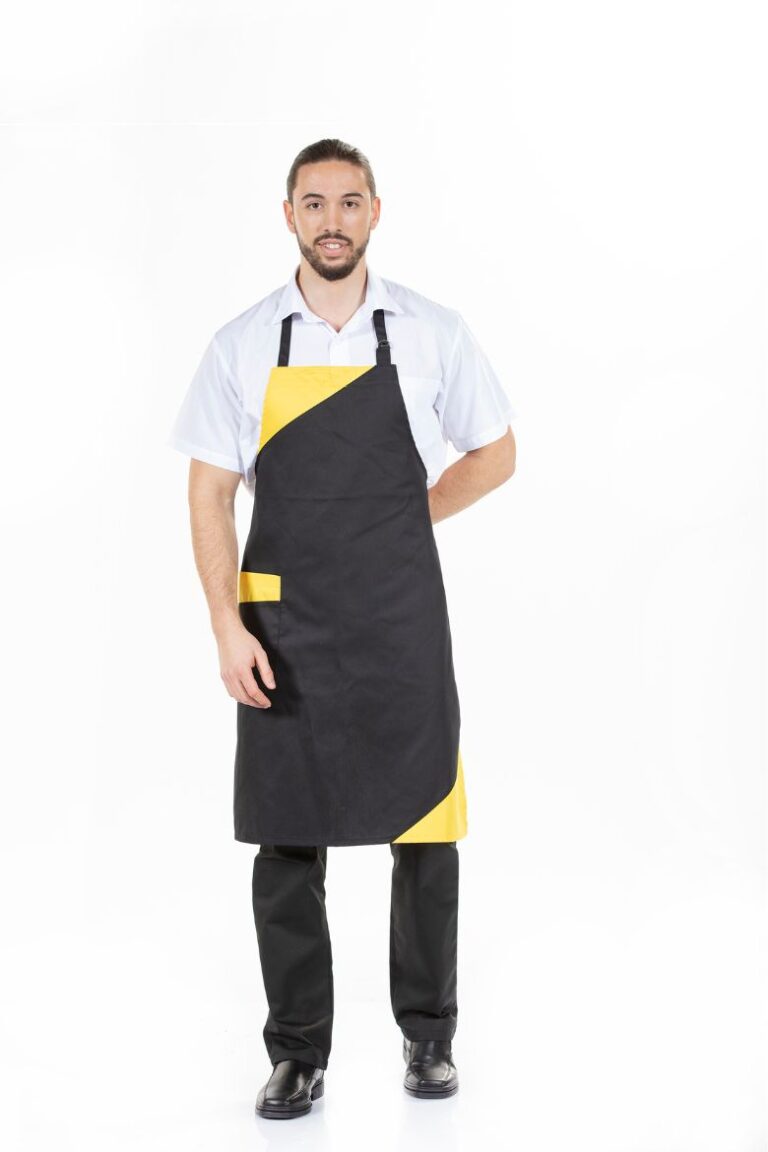
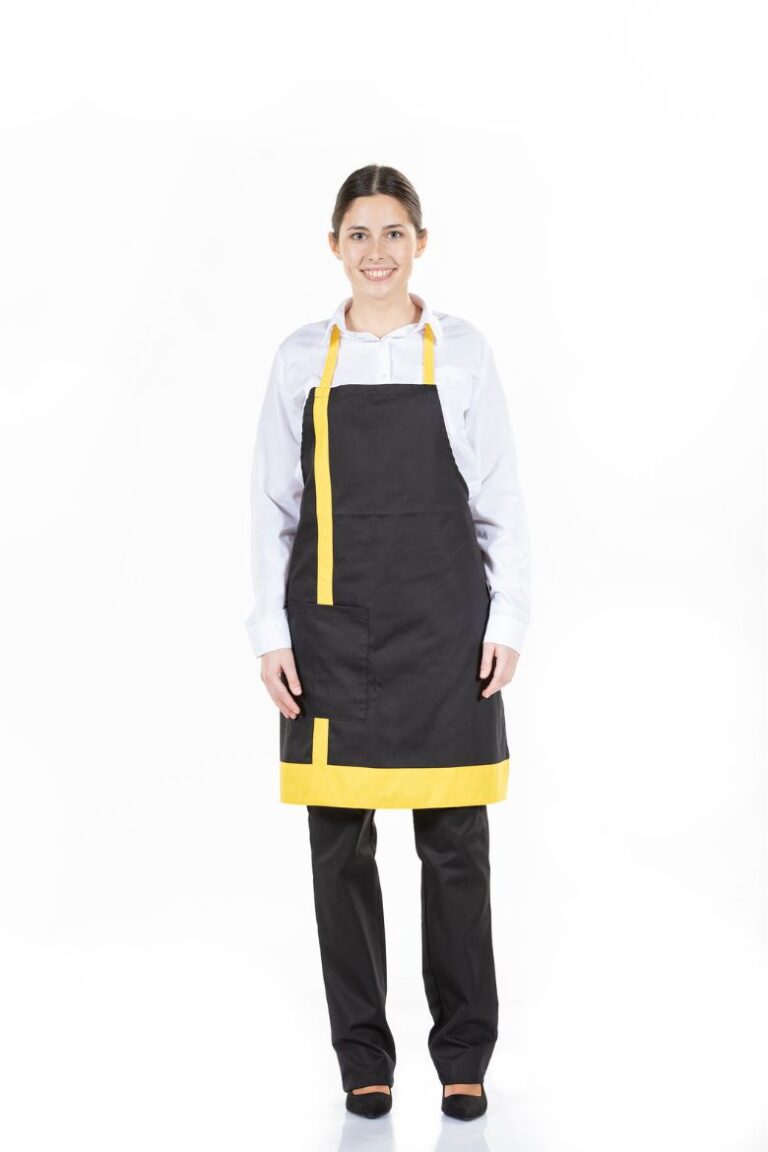
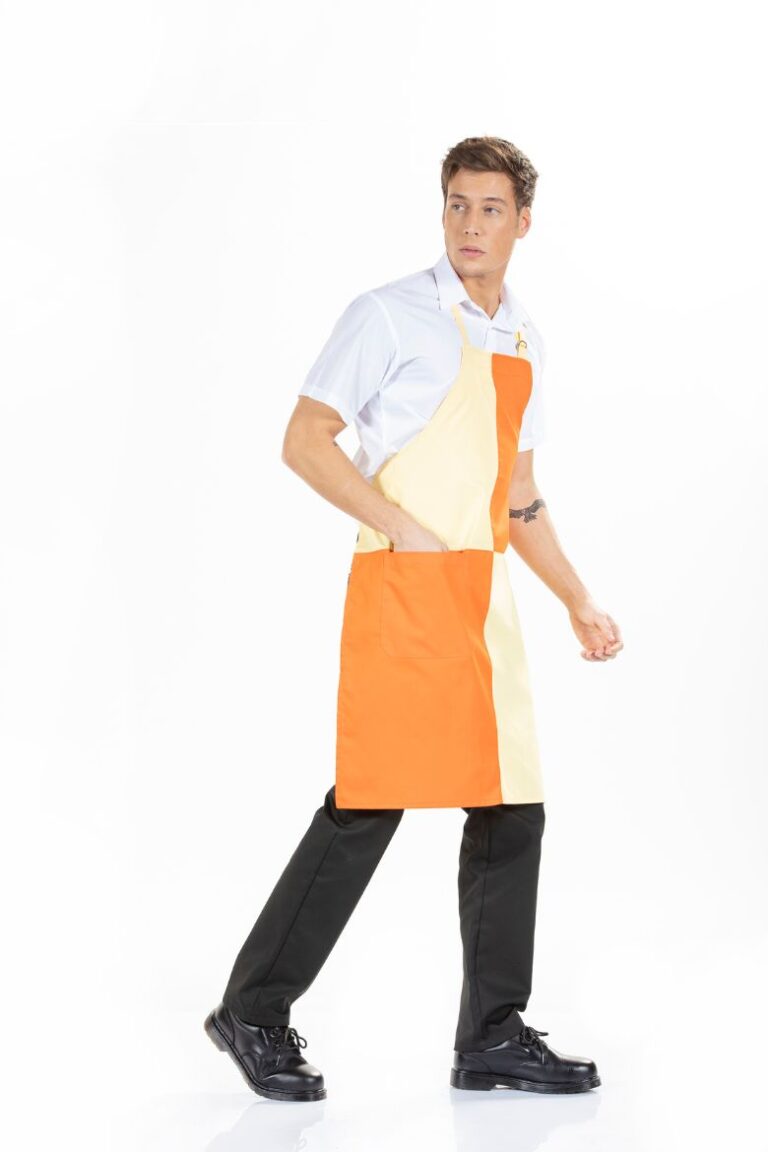
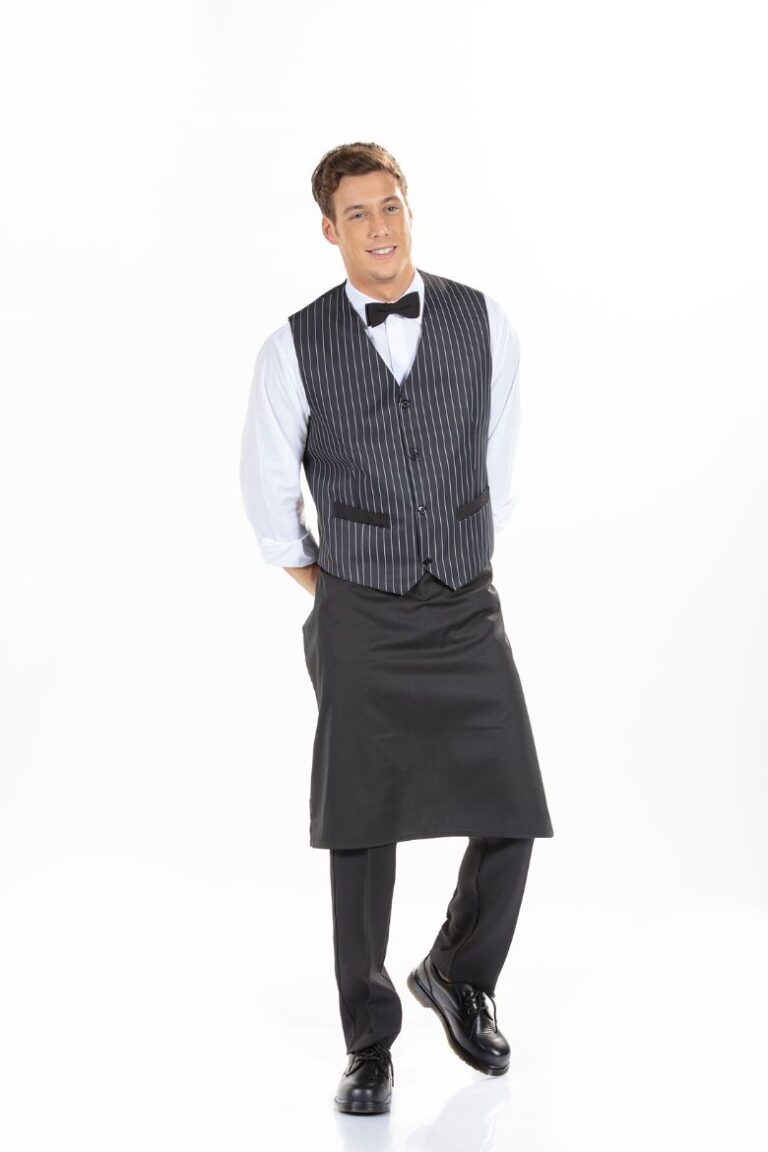
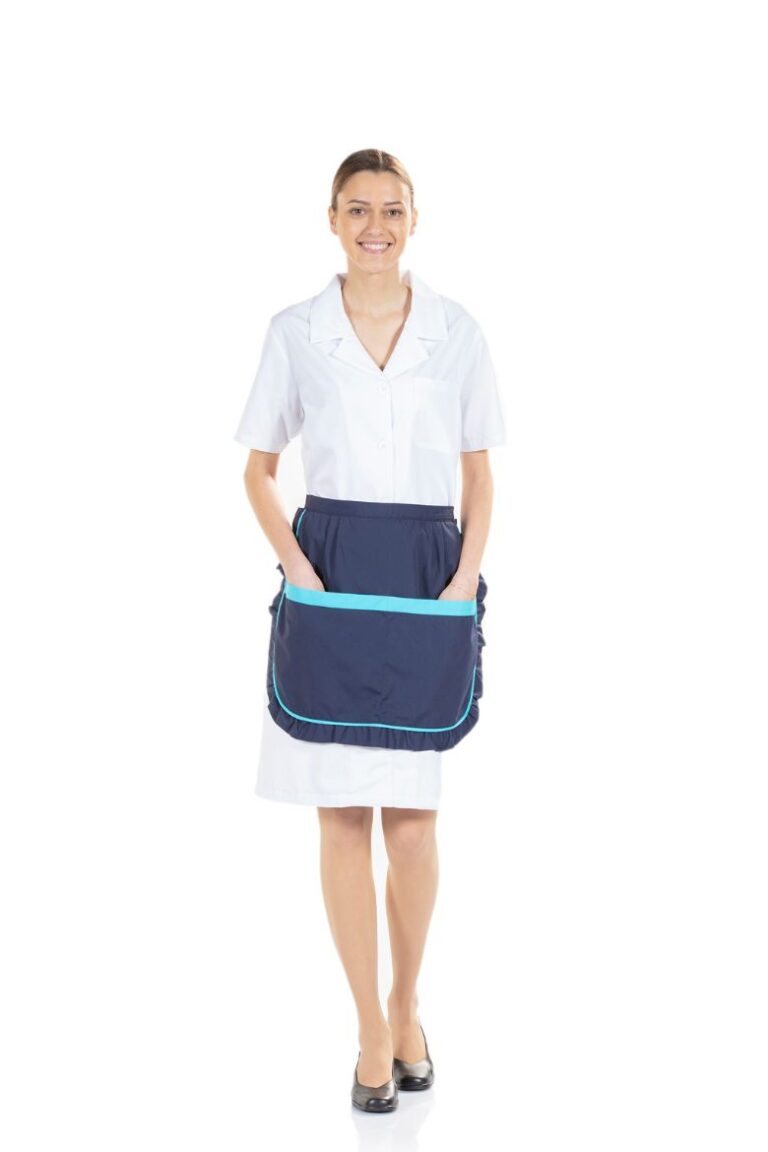
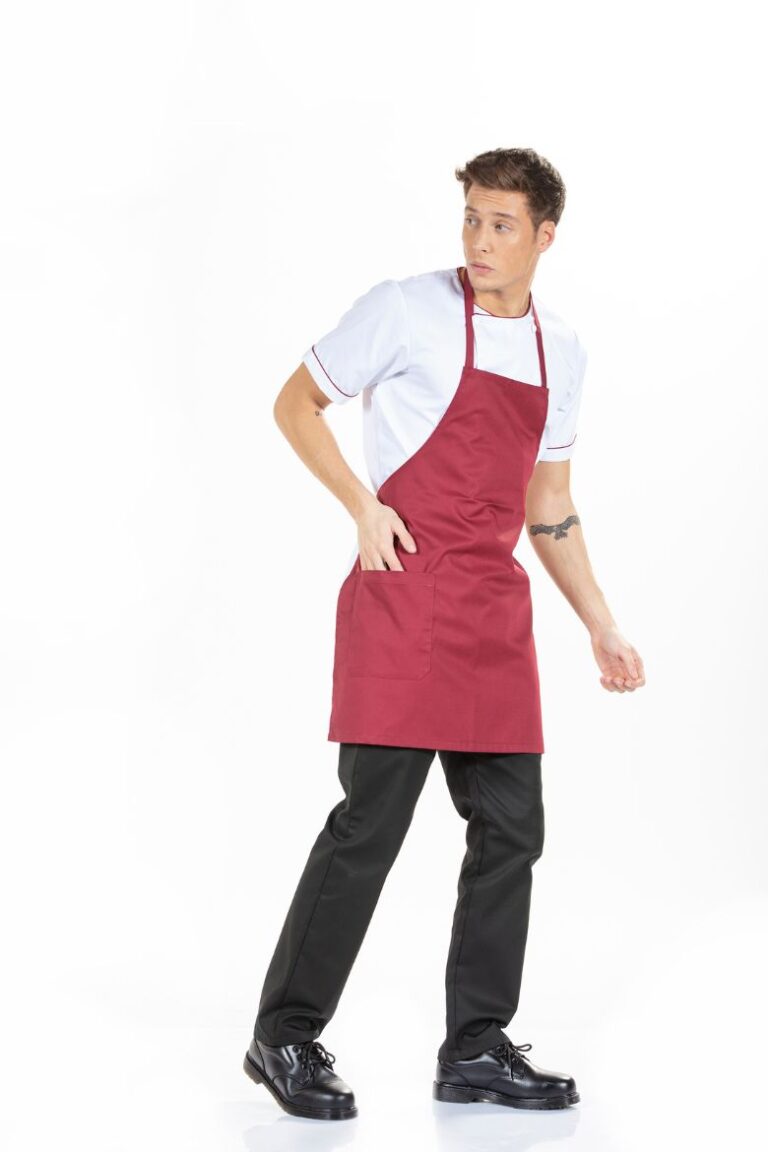
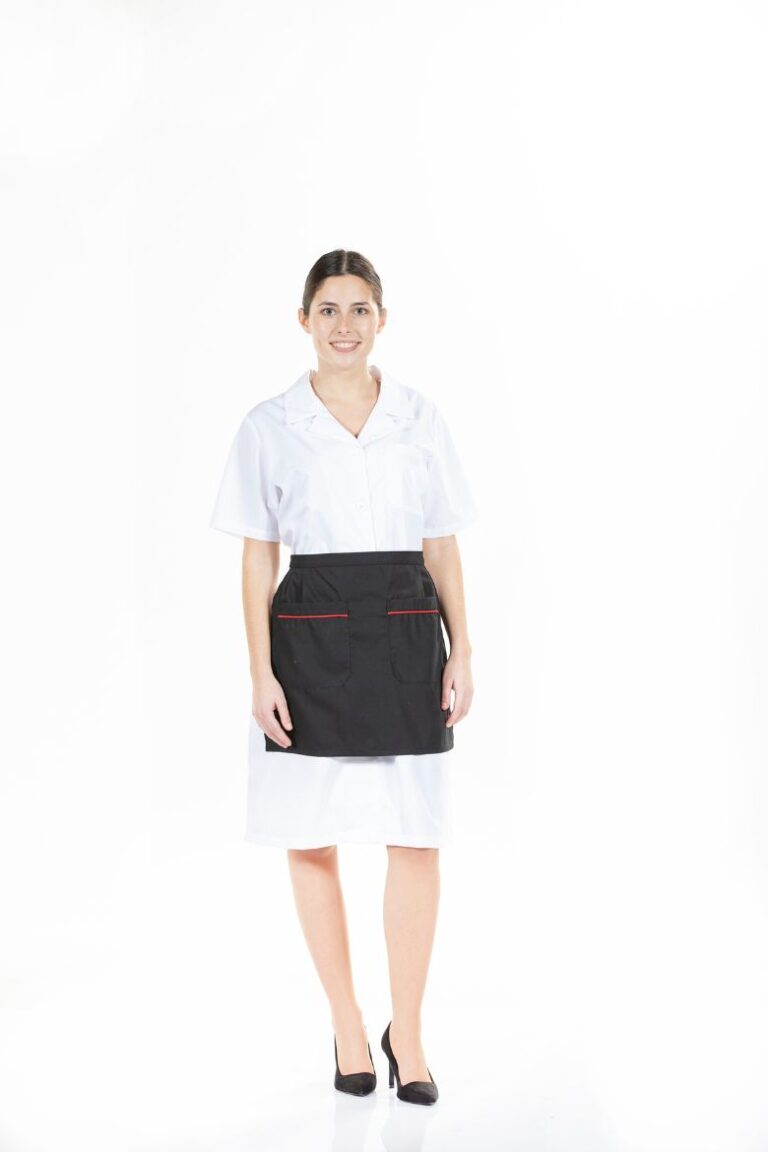
Products with visible prices are those that can be purchased immediately, online, without requiring minimum purchase quantities. This means you can explore our variety of options and purchase exactly what you need, with complete transparency regarding costs and the Professional Apparel model. On the other hand, products without a listed price function as a portfolio of possibilities. These items are highly customizable and can be tailored to each customer's individual specifications. To ensure quality and meet expectations, these products have a minimum order quantity and are subject to a custom quote process.
The ideal size and style of an apron can vary depending on the specific needs of each person and the type of activity performed in the kitchen. Here is a comprehensive answer: Standard Size Aprons: These are the most common aprons, offering broad coverage of the torso and legs. They are ideal for use in both home and professional kitchens, providing effective protection against stains and spills during food preparation. Medium or Short Aprons: These aprons typically cover only the upper part of the body, from the chest to the thigh. They are lighter and allow for greater freedom of movement, making them ideal for activities that do not involve much mess. liquid spills, such as serving at the table. Long Aprons: These aprons provide full-body coverage, including the legs. They are preferred by those who work with ingredients that tend to splatter or splash more, such as chefs or bakers, as they offer more comprehensive protection against stains and dirt. Aprons with Additional Pockets: Some aprons come equipped with extra pockets, which can be useful for those who need quick access to kitchen utensils. These aprons are popular among chefs and professional cooks who need to keep their tools at hand while working. Adjustable Aprons: Aprons with adjustable neck and waist straps can be tailored to different body sizes and heights, providing a comfortable and customized fit for the user. They are ideal for work environments where several people may share the same apron.
Yes, there are specific aprons designed to meet the needs and demands of different types of cooks and kitchen activities. These aprons are developed with the specific challenges faced by various culinary professionals in mind and are tailored to offer additional functionalities and adequate protection. Here are some examples: Aprons for Chefs: These aprons are often longer and sturdier, providing complete coverage of the torso and legs. They may include features such as additional pockets for storing essential kitchen utensils, adjustable straps for a customized fit, and stain- and heat-resistant materials to ensure durability and protection during intense kitchen work sessions. Aprons for Bakers and Pastry Chefs: These aprons are usually longer and are designed to protect against spills and stains common in a baking environment. They may also include extra pockets for storing specific bakery or pastry tools.
In the hospitality and catering industry, where quality and hygiene are paramount, kitchen aprons play a crucial role. These garments not only provide protection to professionals but are also an essential tool for maintaining a clean and organized work environment. On this page, we will explore the advantages of kitchen aprons for workers in this field and the professions where they are an essential part of the professional uniform.
Advantages of Kitchen Aprons:
Protection Against Stains and Spills: Kitchen aprons protect workers’ clothing from food stains, grease, and other liquids that are common during food preparation and cooking. This not only maintains a professional appearance but also helps to prolong the lifespan of their garments.
Hygiene:
In an environment where hygiene is a priority, kitchen aprons help prevent cross-contamination between foods and reduce the risk of bacterial transmission. By covering clothing, they prevent food particles from coming into contact with the worker’s body.
Safety: In addition to protecting against stains and dirt, aprons provide an extra layer of safety against burns and other accidents that can occur in the kitchen.
Convenient Storage: Many kitchen aprons are equipped with pockets or additional compartments, allowing workers quick access to kitchen utensils.
Professionalism: The use of kitchen aprons is a common and expected practice in the hospitality and catering industry. Besides providing protection and functionality, they also contribute to a professional and cohesive appearance of the team.
Professions That Require the Use of Kitchen Aprons:
Head Chef: Chefs are often seen wearing kitchen aprons because they spend most of their time on the preparation line, where they are exposed to various risks and messes.
Sous Chef: As assistants to the head chefs, sous chefs also wear kitchen aprons to protect themselves while working on the preparation and cooking of dishes.
Cooks: Whether in a restaurant, hotel, or any other food preparation and meal service setting, cooks use kitchen aprons to ensure their hygiene and safety while handling food.
Bakers and Pastry Chefs: In the baking and pastry industry, where contact with flour, fats, and other ingredients is frequent, kitchen aprons are essential to keep clothes clean and protected.
Waitstaff: Although not directly involved in food preparation, waitstaff may occasionally use kitchen aprons to protect their clothing while serving customers.
In summary, kitchen aprons are an essential piece of clothing in the hospitality and catering industry, providing protection, hygiene, and functionality to workers. Regardless of the position held, the use of aprons is a standard practice that contributes to a safe and professional work environment.
Fardamento à sua medida.
Descubra as nossas
soluções.
Fardamento à sua medida.
Descubra as nossas
soluções.
To subscribe, please enter your e-mail address and click on “Subscribe”.
You can stop receiving our communications by clicking on the link in the footer of any of our newsletters.
Para efetuar a sua subscrição, por favor insira o seu e-mail e clique em “Subscrever”.
Poderá parar de receber as nossas comunicações, ao clicar no link para o efeito encontrado nos rodapés de qualquer uma das nossas Newsletters.
UNIFARDAS® supports Espaço T, which is an inclusive organisation, of all and for all, and our common goal is to increase employment opportunities for young people with special needs and/or who, for some reason, have been excluded from the labour market.
We work hard to provide safe working conditions by going beyond the imposed and mandatory minimums.
We support, nurture and offer continuous training programmes aimed at improving skills.
At UNIFARDAS® we keep up to date with the latest technologies and innovations that can optimise our production process making it more efficient and close to zero waste.
UNIFARDAS® is a partner of Espaço T, an inclusive organisation, of all and for all, with the common goal of increasing employment opportunities for young people with special needs and/or who, for some reason, have been excluded from the labour market. In this organisation, immigrants will also find a support network in finding work and housing.
In addition to the sustainable path we have been taking throughout our production and supply chain, UNIFARDAS® participates, supports and organises a beach clean-up every year after the bathing season, in partnership with World Clean-up Day. We are also partners of Seaqual, an entity that, together with some other partners, promotes the collection of ocean waste and its transformation into upcycled marine plastic that will then be used in the production of fabric and other sustainable products.
In addition to the sustainable path we have been taking throughout our production and supply chain, UNIFARDAS® participates, supports and organises a beach clean-up every year after the bathing season, in partnership with World Clean-up Day. We are also partners of Seaqual, an entity that, together with some other partners, promotes the collection of ocean waste and its transformation into upcycled marine plastic that will then be used in the production of fabric and other sustainable products.